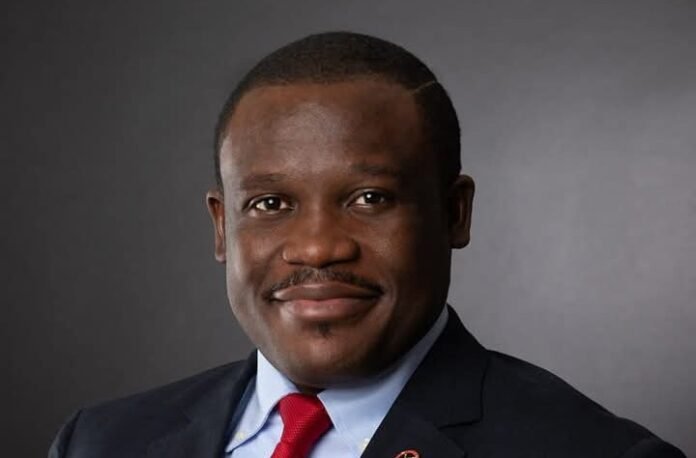Samuel Nartey George
By Melvin Tarlue
It remains unclear whether Ghana’s Minister of Communication, Digital Technology and Innovations, Samuel Nartey George, truly understood what he set out to achieve when he launched a high-profile battle against MultiChoice Ghana in August 2025.
At the time, the Minister’s message was unequivocal: he demanded that DSTV subscription fees be slashed by at least 30%. His justification was rooted in what he saw as glaring regional disparities. Ghanaians, he argued, were being taken for “granted,” especially when compared to their counterparts in Nigeria and other African countries. The numbers he cited struck a nerve: “They [MultiChoice] charge the equivalent of US$83 for the premium package in Ghana, while their counterparts pay only US$29 for the same service.”
Framing the issue as one of fairness and national dignity, Sam George portrayed himself as a defender of the ordinary Ghanaian consumer. He dismissed MultiChoice Ghana’s counter-proposal — to maintain current prices while halting the repatriation of revenue to South Africa — as one that “lacks any logic.” He insisted that pricing, not accounting or corporate structure, was the real issue.
His rhetoric found traction among frustrated DSTV subscribers, many of whom had long questioned why access to basic entertainment and information should feel like a luxury. The Minister set clear expectations: either prices would come down, or regulatory action would follow.
But by September 30, 2025, a dramatic shift had occurred. Instead of announcing the long-promised reduction in subscription costs, Sam George stood before journalists and declared a different outcome:
“MultiChoice Africa has committed to an unprecedented increase in value offer only in Ghana which will result in Ghanaian DStv subscribers getting more services for less.”
He added:
“Depending on the DSTV package or bouquet you use, subscribers will get between 33% to 50% more value.”
This pivot from price reduction to value addition raises uncomfortable but necessary questions. Was the Minister’s original campaign really about affordability — or was it, from the start, a populist move designed to score political points?
After weeks of public promises and firm ultimatums, what subscribers were offered was not cheaper access, but more content — if they could still afford the original price. The fundamental problem remains: a subscriber struggling to pay GHC 500 for a package doesn’t magically find that money just because the package now includes a few extra channels.
Value addition, while potentially beneficial to wealthier customers already subscribed, does little to assist households on the margins. It only kicks in after payment is made. For those unable to afford DSTV in the first place, 50% more content means nothing if the subscription fee remains unchanged. As critics have noted, what good is “50% more value” if 50% of potential subscribers still can’t afford the product?
The sudden change in tone suggests that the Minister either failed to fully understand DSTV’s regional pricing model and the underlying market forces — including taxes, currency volatility, and local operating costs — or that he chose political expediency over policy depth. If he had done a comprehensive assessment of the DSTV pricing ecosystem across Africa, he might have pursued a more strategic, evidence-based campaign.
Instead, the promise of a 30% price cut has quietly evaporated. In its place now stands “value increase,” which was never part of the original demand. This isn’t a strategic win. It’s a reframing of failure — and a broken promise to the public.
The Minister must now confront the disconnect between what he promised and what he delivered. He made price reduction the center of his campaign. He rejected compromise. He told Ghanaians they were being overcharged and vowed to fix it. Now, after weeks of drama, nothing has changed in terms of affordability. The subscription fees remain the same, and Ghanaians must simply settle for a few additional channels.
In light of this, it is reasonable — even necessary — to call on Sam George to apologize to the Ghanaian public. Not because he showed concern, but because he raised expectations he failed to meet, and then shifted the narrative. If affordability was the issue in August, it remains the issue today.
This episode should serve as a broader lesson in leadership and policy communication. Real consumer advocacy requires more than bold headlines. It demands careful research, serious consultation, and honest follow-through. Sam George had an opportunity to lead a data-driven, regionally benchmarked review of DSTV pricing. He could have commissioned independent studies, engaged regulators, and built a credible case grounded in economics — not emotion.
Instead, the campaign was launched with sweeping rhetoric and ended with underwhelming results.
Until the Minister acknowledges the gap between promise and outcome, Ghanaians are right to ask: Was this ever really about us — or was it just politics?








